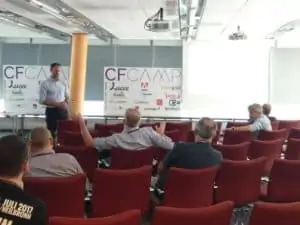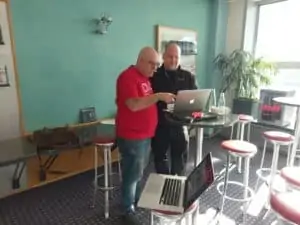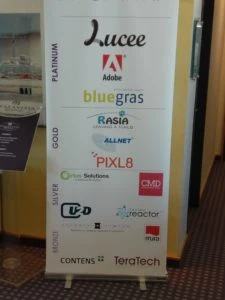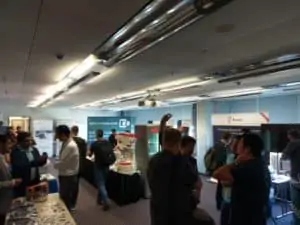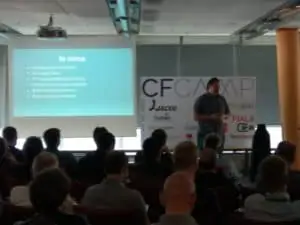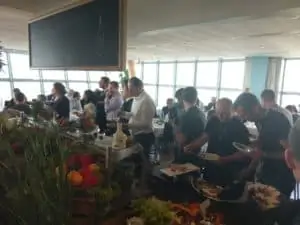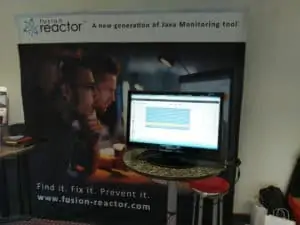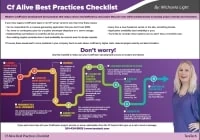CFCamp in Munich is done for 2017. 150 people came, which is a record for the organizers, liters of coffee drank, and an ice cream machine!
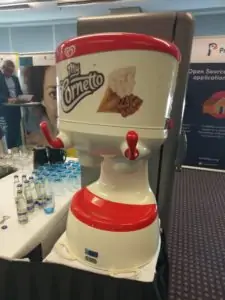
This was a 2-day full-on conference with 5 official coffee brakes, and with a great quiz at the end of day 1 with Mark Drew and Rob Dudley from Localhost Podcast. We have had a pleasure of listening 25 presentations with 20+ speakers. Very impressive.
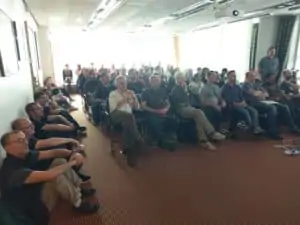
A general impression from everyone I've talked with is that it was an excellent organized show, with very interesting topics, covering ColdFusion, and also covering some interesting topics that are not completely CF-related. An example is a talk about IoT, by Dorian Schneltzer, and Cyber-Security seen by an IT-Manager.
Here are some hackers, but without their ski-masks on 🙂
Everyone was happy that Lucee sponsored the conference-> free drinks everyone!
Hey, what about some refreshments? The sponsors and attendees talking about CFML, and on the left, you can see the Adobe management team!
Gert Franz talks about Lucee and their future plans. As always, very interesting presentation, and looking forward to seeing what's cookin' at Lucee's kitchen!
Great food, great people, and some cool codes on this years CFCamp
Big thanks to Michael Hnat, the organizer of CFCamp! We hear that this venue might be too small for the next year, because it has reached its maximum capacity!
Big thanks to all the speakers and see you next year!
Stay tuned for the full list of all the speakers and the slides from their presentations.
And to continue learning how to make your ColdFusion apps more modern and alive, I encourage you to download our free ColdFusion Alive Best Practices Checklist.
Because… perhaps you are responsible for a mission-critical or revenue-generating CF application that you don’t trust 100%, where implementing new features is a painful ad-hoc process with slow turnaround even for simple requests.
What if you have no contingency plan for a sudden developer departure or a server outage? Perhaps every time a new freelancer works on your site, something breaks. Or your application availability, security, and reliability are poor.
And if you are depending on ColdFusion for your job, then you can’t afford to let your CF development methods die on the vine.
You’re making a high-stakes bet that everything is going to be OK using the same old app creation ways in that one language — forever.
All it would take is for your fellow CF developer to quit or for your CIO to decide to leave the (falsely) perceived sinking ship of CFML and you could lose everything—your project, your hard-won CF skills, and possibly even your job.
Luckily, there are a number of simple, logical steps you can take now to protect yourself from these obvious risks.
No Brainer ColdFusion Best Practices to Ensure You Thrive No Matter What Happens Next
ColdFusion Alive Best Practices Checklist
Modern ColdFusion development best practices that reduce stress, inefficiency, project lifecycle costs while simultaneously increasing project velocity and innovation.
√ Easily create a consistent server architecture across development, testing, and production
√ A modern test environment to prevent bugs from spreading
√ Automated continuous integration tools that work well with CF
√ A portable development environment baked into your codebase… for free!
Learn about these and many more strategies in our free ColdFusion Alive Best Practices Checklist.
